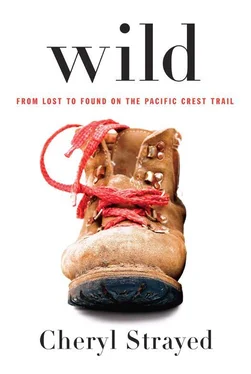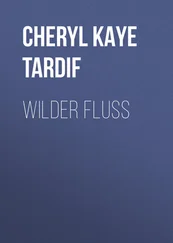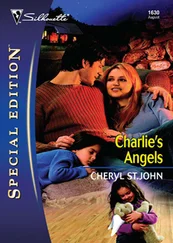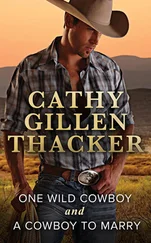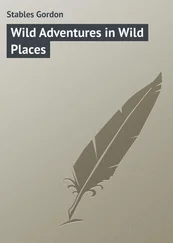Cheryl Strayed - Wild
Здесь есть возможность читать онлайн «Cheryl Strayed - Wild» весь текст электронной книги совершенно бесплатно (целиком полную версию без сокращений). В некоторых случаях можно слушать аудио, скачать через торрент в формате fb2 и присутствует краткое содержание. Год выпуска: 2012, ISBN: 2012, Жанр: Современная проза, на английском языке. Описание произведения, (предисловие) а так же отзывы посетителей доступны на портале библиотеки ЛибКат.
- Название:Wild
- Автор:
- Жанр:
- Год:2012
- ISBN:978-0-307-95765-8
- Рейтинг книги:4 / 5. Голосов: 1
-
Избранное:Добавить в избранное
- Отзывы:
-
Ваша оценка:
- 80
- 1
- 2
- 3
- 4
- 5
Wild: краткое содержание, описание и аннотация
Предлагаем к чтению аннотацию, описание, краткое содержание или предисловие (зависит от того, что написал сам автор книги «Wild»). Если вы не нашли необходимую информацию о книге — напишите в комментариях, мы постараемся отыскать её.
Wild — читать онлайн бесплатно полную книгу (весь текст) целиком
Ниже представлен текст книги, разбитый по страницам. Система сохранения места последней прочитанной страницы, позволяет с удобством читать онлайн бесплатно книгу «Wild», без необходимости каждый раз заново искать на чём Вы остановились. Поставьте закладку, и сможете в любой момент перейти на страницу, на которой закончили чтение.
Интервал:
Закладка:
But I knew what those 498 miles were. I’d been in California two months, but it seemed like I’d aged years since I’d stood on Tehachapi Pass alone with my pack and imagined reaching this spot. I went to the metal box, pulled out the trail register, and paged through it, reading the entries from the previous weeks. There were notes from a few people whose names I’d never seen and others from people I hadn’t met, but whom I felt I knew because I’d been trailing them all summer. The most recent entries were from the couples — John and Sarah, Helen and Sam. Beneath their jubilant entries, I wrote my own, so overwhelmed with emotion that I opted to be concise: “I made it!”
Oregon. Oregon. Oregon .
I was here. I walked into it, catching views of the peaks of majestic Mount Shasta to the south and the lower but sterner Mount McLoughlin to the north. I hiked high on a ridgeline, coming to short icy patches of snow that I crossed with the help of my ski pole. I could see cows grazing in the high green meadows not far below me, their big square bells clanking as they moved. “Hello, Oregon cows,” I called to them.
That night I camped under a nearly full moon, the sky bright and cool. I opened J. M. Coetzee’s Waiting for the Barbarians , but read only a few pages because I couldn’t concentrate; my mind wandered to thoughts of Ashland instead. It was finally so close that I could bear to let myself think about it. In Ashland there would be food, music, and wine, and people who knew nothing of the PCT. And most important, there’d be money, and not just my usual twenty bucks. I’d put $250 in traveler’s checks into my Ashland box, originally believing that it would be the box that greeted me at the very end of my trip. It didn’t contain food or resupplies. It had only traveler’s checks and a “real world” outfit to wear — my favorite faded blue Levi’s and a slim-fitting black T-shirt; a brand-new black lace bra and matching underwear. It was in these things that months before I thought I’d celebrate the end of my trip and catch a ride back to Portland. When I’d changed my itinerary, I’d asked Lisa to put that small box into another of the boxes I’d loaded down with food and supplies and readdress it to Ashland, instead of one of the stops I wasn’t going to make in the Sierra Nevada. I couldn’t wait to get my hands on it — that box within the box — and spend the weekend wearing nontrail clothes.
I arrived in Ashland the next day around lunchtime, after hitching a ride from the trail with a group of AmeriCorps volunteers.
“Did you hear the big news?” one of them had asked after I’d climbed into their van.
I shook my head without explaining that I’d heard little news, big or small, for two months.
“You know the Grateful Dead?” he asked, and I nodded. “Jerry Garcia is dead.”
I stood on a sidewalk in the center of town and bent to see an image of Garcia’s face in psychedelic colors on the front page of the local paper, reading what I could through the newspaper box’s clear plastic window, too broke to spring for a copy. I’d liked several of the Grateful Dead’s songs, but I’d never collected tapes of their live shows or followed them around the country like some of my Deadhead friends had. Kurt Cobain’s death the year before had felt closer to me — his sad and violent end a cautionary tale not only of my generation’s excesses, but of my own as well. And yet Garcia’s death felt bigger, as if it was the end of not just a moment, but an era that had lasted all of my life.
I walked with Monster on my back a few blocks to the post office, passing homemade signs propped in store windows that said: WE LOVE YOU, JERRY, RIP. The streets were alive with a mix of well-dressed tourists pouring in for the weekend and the radical youth of the lower Pacific Northwest, who congregated in clumps along the sidewalks emitting a more intense vibe than usual because of the news. “Hey,” several of them said to me as I passed, some adding “sister” to the end. They ranged in age from teenager to senior citizen, clad in clothing that placed them somewhere along the hippy/anarchist/punk rock/funked-out artist continuum. I looked just like one of them — hairy, tan, and tattooed; weighed down by all of my possessions — and I smelled like one of them too, only worse, no doubt, since I hadn’t had a proper bath since I’d showered at that campground in Castle Crags when I’d been hungover a couple of weeks before. And yet I felt so outside of them, of everyone, as if I’d landed here from another place and time.
“Hey!” I exclaimed with surprise when I passed one of the quiet men who’d been in the truck that had pulled up at Toad Lake, where Stacy and I had been searching for the Rainbow Gathering, but he replied with a stony nod, not seeming to remember me.
I reached the post office and pushed its doors open, grinning with anticipation, but when I gave the woman behind the counter my name, she returned with only a small padded envelope addressed to me. No box. No box within the box. No Levi’s or black lace bra or $250 in traveler’s checks or the food I needed to hike to my next stop at Crater Lake National Park.
“There should be a box for me,” I said, holding the little padded envelope.
“You’ll have to check back tomorrow,” the woman said without concern.
“Are you sure?” I stammered. “I mean … It should definitely be there.”
The woman only shook her head unsympathetically. She cared nothing for me. I was a dirty, smelly radical youth of the lower Pacific Northwest. “Next,” she said, signaling to the man standing at the head of the line.
I staggered outside, half blind with panic and rage. I was in Ashland, Oregon, and I had only $2.29. I needed to pay for a room at the hostel that night. I needed my food before I hiked on. But more than anything — after sixty days of walking beneath my pack, eating dehydrated foods that tasted like warmed-up cardboard, and being utterly without human contact for sometimes weeklong stretches while hiking up and down mountains in an astonishing range of temperatures and terrains — I needed things to be easy. Just for a few days. Please .
I went to a pay phone nearby, took Monster off and set it down, and shut myself into the phone booth. It felt incredibly good to be inside, like I didn’t ever want to leave this tiny transparent room. I looked at the padded envelope. It was from my friend Laura in Minneapolis. I opened the envelope and pulled its contents out: a letter folded around a necklace she’d made for me in honor of my new name. STRAYED it said in blocky silver letters on a ball-link chain. At first glance it looked like it said STARVED because the Y was slightly different from all the other letters — fatter and squatter and cast from a different mold, and my mind scrambled the letters into a familiar word. I put the necklace on and looked at the distorted reflection of my chest in the telephone’s glossy metal face. It hung beneath the one I’d been wearing since Kennedy Meadows — the turquoise-and-silver earring that used to belong to my mother.
I picked up the phone and attempted to make a collect call to Lisa to inquire about my box, but there was no answer.
I strolled the streets miserably, trying not to want anything. Not lunch, not the muffins and cookies that sat on display in the windows, not the lattes in the paper cups that the tourists held in their spotless hands. I walked to the hostel to see if I could find Stacy. She wasn’t there, the man who worked the desk told me, but she’d be back later — she’d already checked in for that night. “Would you like to check in too?” he asked me, but I only shook my head.
I walked to the natural food cooperative, the front of which the radical youth of the lower Pacific Northwest had made into something of a daytime encampment, gathering on the grass and sidewalks in front of the store. Almost immediately, I spotted another of the men I’d seen up at Toad Lake — the headband man, the leader of the pack who, like Jimi Hendrix, called everybody baby . He sat on the sidewalk near the entrance to the store holding a little cardboard sign that had a request for money scrawled in marker across it. In front of him there was an empty coffee can with a smattering of coins.
Читать дальшеИнтервал:
Закладка:
Похожие книги на «Wild»
Представляем Вашему вниманию похожие книги на «Wild» списком для выбора. Мы отобрали схожую по названию и смыслу литературу в надежде предоставить читателям больше вариантов отыскать новые, интересные, ещё непрочитанные произведения.
Обсуждение, отзывы о книге «Wild» и просто собственные мнения читателей. Оставьте ваши комментарии, напишите, что Вы думаете о произведении, его смысле или главных героях. Укажите что конкретно понравилось, а что нет, и почему Вы так считаете.
